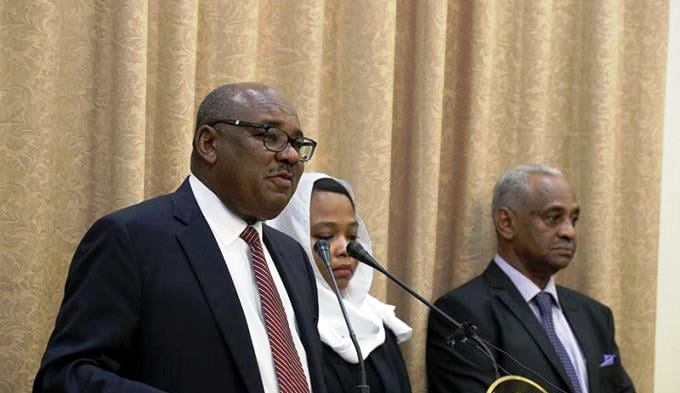Sudan’s economy minister announces 200-day emergency plan

September 8, 2019 (KHARTOUM) – Sudan’s newly appointed Finance Minister announced a 200-day emergency plan to restore the ravaged economy during the transitional period saying it aimed to translate the slogans of the Sudanese revolution.
Ibrahim al-Badawi made the announcement in a press conference held after the swearing-in ceremony of the transitional government on Sunday.
According to the minister, the 200-day plan is based on five main axes, including macroeconomic stabilization, measures to stabilize commodity prices, addressing the youth unemployment, transition from humanitarian aid to sustainable development and capacity building of economic management institutions.
“The government would work first to stabilizing the macro-economy, restructuring the budget and raising the financial effort so that the state can fulfil its obligations towards the people in terms of social welfare and spending on education, health and development,”.al-Badawi said.
In addition to this monetary and fiscal framework, he said his ministry will take reglementary and even penal measures to stabilize prices and reduce the cost of living.
“The people are now politically and emotionally free, but economically oppressed. Every effort must be made to address this crisis with an urgent emergency plan until economic programs such as macroeconomic stabilization, combating inflation, exchange rates, liquidity and others are prepared,” he added.
The Sudanese economy has suffered from a lack of foreign currency as the government uses all the income of oil and gold revenues to fund its security apparatus and army.
Also, the high level of corruption added to the international isolation and sanctions on the Islamist regime, all these factors, contributed to destroying the national economy, particularly after the secession of South Sudan which deprived Sudan of three-quarters of the oil output.
Regarding the youth unemployment, the minister said his government will work to tackle the crisis through short-term and long-term programmes.
Speaking about the war-ravaged regions of Darfur, the Blue Nile and South Kordofan states, he said they will work to achieve the transition from humanitarian aid to sustainable development in the three regions in support of the peacebuilding process.
He underscored that there is great and unrestricted support from the international development community stressing it will not be affected by the sanctions imposed on Sudan.
After what, he moved to speak about the last point in his five axes plan which is the capacity building and the development of economic management institutions in the different economic ministries.
He further said it was vital to prepare the Sudanese economy during the second and third year of the transitional period to move towards value-added activities which means stopping the exportation of the raw material and to develop manufacturing firms.
During the second term of the transitional period, he said they would also work to move from subsidizing goods to directly supporting Sudanese people.
He concluded by saying the 200-day plan aims to fight poverty and achieve social justice in Sudan and to prepare the county for the structural transformation of its economy.
“This is a strategic project aimed at achieving sustainable development goals during the transitional period, the most important of which is fighting poverty and achieving social justice,” he said.
(ST)
